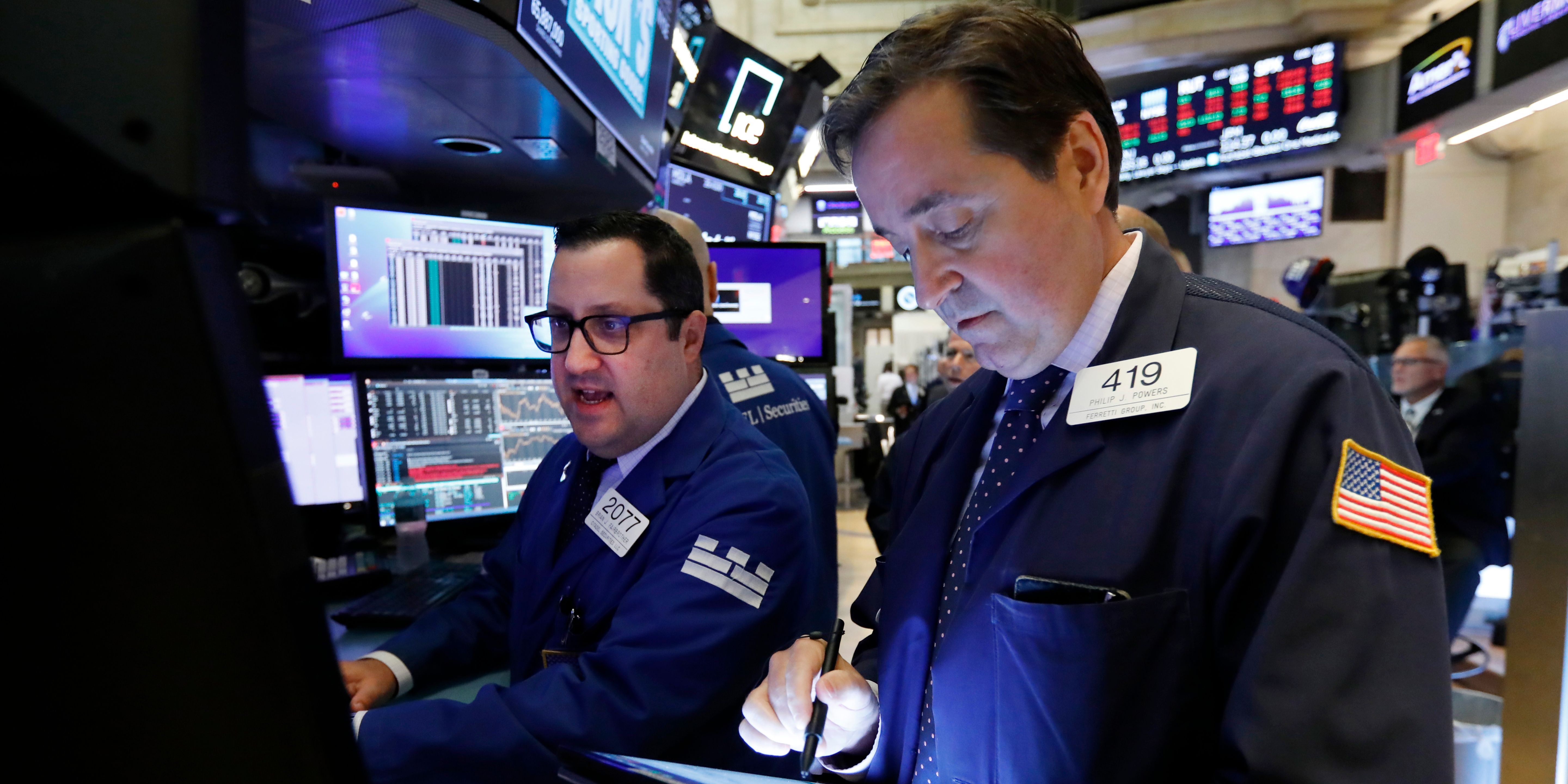- Bank of America Merrill Lynch’s October Global Fund Manager survey found that a record 57% said global fiscal policy is “too restrictive” right now.
- In addition, a record 90% think that the US is in a “late-cycle” environment, and 31% expect a recession in the next 12 months.
- The trade war between the US and China is still the top risk to markets, and a resolution would be the most bullish catalyst for equity markets in the next six months.
- Read more on Business Insider.
A record number of fund managers think that fiscal policy is too tight, meaning that the government isn’t doing enough to keep the global economy from recession, according to Bank of America Merrill Lynch.
The bank surveyed 230 fund managers with $620 billion assets under management in October and found that 57% said global fiscal policy is “too restrictive.” The results showed a large swing in sentiment – as recently as November 2018, 33% said that fiscal policy was too stimulative.

Investors are “increasingly looking towards fiscal policy to boost growth,” according to the survey, amid a volatile time for the global economy.
Tight fiscal policy is worriesome for investors because a lack of government spending to stimulate the economy can lead to a recession. The Tax Cuts and Jobs Act in 2017 fueled the economic expansion by giving wages and overall growth a boost in 2018, but in 2019 the effect of the stimulus has begun to fade. This could pave the way for a slowdown.
In addition to thinking that fiscal policy is too tight, a majority of fund managers expect a cyclical downturn is ahead - a record 90% said that we're currently in a "late-cycle" environment, meaning that they expect growth to diminish in the near future. As many as 31% expect a recession over the next 12 months, versus 67% who see a recession as unlikely.

Fear about tight fiscal policy is likely linked to the trade war, which fund managers still see as the top tail risk for markets. It's dominated the last 18 of 20 surveys, and 40% still count it as the top risk for markets.
This is important because the trade war has done the opposite of fiscal stimulus in the US - it's lowered consumer and business sentiment and spending, drivers of the US economy and markets. Fund managers are bearish on global corporate profits, according to the survey, and expect them to deteriorate over the next 12 months.
If the trade war is resolved, 75% said it would be the most bullish event for equity markets in the next six months. This is because it would take away the largest risk for consumers and companies right now, and likely boost spending by both in the future.
But, the survey also indicates that many investors think the trade war is here to stay. More than 40% think that the US-China trade war won't be resolved and represents a "new normal," opposed to 36% who think there will be a trade deal in 2020 before the Presidential election.

